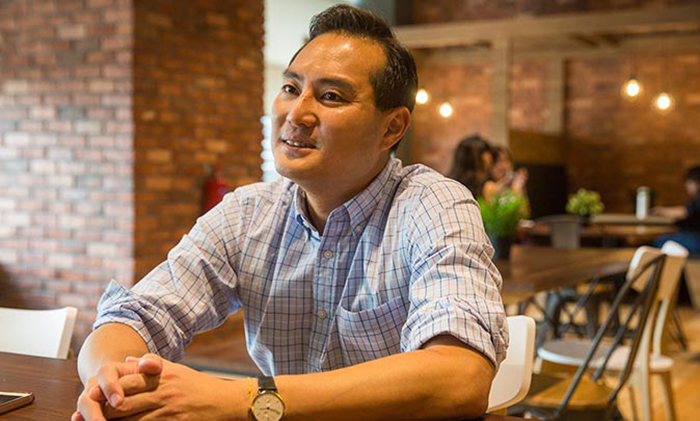IMDA: Utilities for a digital age to be ‘dumb’, integrated and inclusive
By Dzof Azmi June 6, 2019
- Innovation should be left to marketplace, government helps drive inclusivity
- Welcomes companies like Tencent who offer to partner to digitalise

"SINGAPORE is a small country with a small economy. To remain a country that's vibrant we have to remain relevant to the rest of the world," said Tan Kiat How (pic), chief executive of Singapore's IMDA (Infocomm Media Development Authority).
In order to do so, Singapore must build digital utilities that leave innovation to the marketplace, while ensuring that there is integration across verticals and that all benefit from its progress.
Tan was speaking during a roundtable discussion, "The trend of industrial change in the era of digital economy" during the Tencent Global Digital Ecosystem summit held recently in Kunming, China.
"Singapore has been trying to digitalise for the last three to five years but it's very difficult," said Tan, admitting to difficulties in pushing the agenda through. "There are traditional industries with their own sets of business practices, with their own sets of regulations, (and) own institutions within the industry."
Yet Singapore will push ahead. "For us, digitalisation is an important trend that will disrupt the global economy and industries," said Tan.
This has long been in the planning for Singapore. "There is a 10 year plan to think about infrastructure, the fundamentals that we need to put in place, so that we continue to service industries and companies like Tencent."
To that end, Tan welcomed the recent announcement by Tencent to partner industries in order to expedite digitisation, and hoped companies would reach out as well. "There are many (Singaporean) companies that think ‘What will we be losing?’” said Tan about digitalisation. "With Tencent partnering them, (there will be) the confidence (and) the willingness to work with you," he said.
"We are paying a lot of attention to it (digitalisation)."
Utilities for a digital age
Tan agreed wholeheartedly with a statement made by fellow panellist Zhaofeng Yu that people tend to overestimate what can be done with technology in a year, but underestimate what can be done in 10 years. "That is how as a policy maker, as a country, as a government, we think about digitalisation,” he said, pointing to the long-term benefits.
"The government's role is to put in place utilities," explained Tan. "And, in a digital world, we have to think about utilities in a very different way."
Specifically, Tan said that government should lay the groundwork for companies to thrive and innovate upon. "It's all right to put in a ‘dumb’ platform," continued Tan, referring to the idea that platforms should be as neutral and simple as possible. "The smart innovation needs to come from the marketplace."
Delving into greater detail, Tan said that Singapore sees companies operating at two distinct levels with respect to digitalisation. At the lower level, are the SMEs who need all the help they can get to take the right first steps.
"When you register your company on day one, you are given a set of digital tools that plug in digital utilities within a digital ecosystem," he explained. "So, you are digital from day one."
However, higher up the value chain, the government sees its role to ensure integration and interoperability. "Every vertical has to be digital," Tan insisted. "The entire supply chain and value chain needs to be digital."
The IMDA chief illustrated this by quoting a McKinsey study highlighting that by 2026, US$60 trillion (RM251 trillion) of value will be redistributed across industry verticals.
"That's where platforms like Tencent provide value," Tan concluded.
Digitalisation needs to benefit everyone
However, with great change comes similarly great upheaval. "The biggest challenge is that the workers themselves do not have the new skills," admitted Tan. "So we have decided to have a movement in Singapore, all companies come aboard and make a commitment to train employees to take on new jobs."
Apart from that, facilities at the workplace must be up to date and inclusive for those with disabilities. "It is our vision and our belief that digitalisation needs to benefit everyone – workers, citizens or humankind. Even companies," concluded Tan.
"The responsibility to do that lies with everyone. It's not just the government, it's not just the workers themselves but also the companies."
Dzof Azmi reports from the Tencent Global Digital Ecosystem summit in Kunming, China, at the invitation of Tencent. All editorials are independent.
Related Stories :


